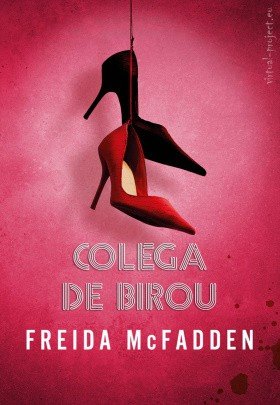He frowned at his father. “I thought you were kidding.”
“I was kidding, Cal,” his father said. “If I drank a beer, I’d probably pee myself. Oh hell, I do that already.” His father slapped his thighs and made a show of sitting up straighter. “What’s new with you, son?”
“I had a nice surprise today,” Cal said. He recounted the whole story, from his misstep coming out of the Hall of Fame, to the invitation to attend the Henderson party in July.
“I remember him,” his father said. “He was a good kid. Nothing like Rudy.”
“Rudy’s a good guy,” Cal said.
“Yeah, sure he is,” his father replied. “Underneath the bravado and behavior bordering on amoral, he’s a stellar chap.”
“You’re still sore at him for nearly landing me in jail when I was fifteen,” Cal said.
“I’m still sore at him for training you to choose eternal bachelorhood. Under his tutelage, you began to favor personal freedom over family. Any number of women you dated before Leslie would have made fine wives, but Rudy drove them off with his constant invitations to extend your adolescence. Rudy robbed me of grandchildren.”
“You can’t blame Rudy.” The truth was Rudy acted as Cal’s anchor, someone who seemed to understand him, accept him, serve as his one constant outside the world of Cal’s family. “Besides, Heidi made up for a lack of progeny on my part.”
“Nothing like having a grandson from a son to pass on the name.”
“Hell-Oh might change her last name to Forster,” Cal said. “She’s a rebel.”
His father laughed. “She’ll teach us all a thing or two someday. Your mother would have loved that little girl.” His voice trailed off.
“Mom would have loved all of them,” Cal said.
His father nodded, his voice low, steeped in nostalgia when he said, “She had plenty of love to go around.” He looked Cal in the eye. “You’re like your mother. I’m not sure if you were born like her, or if she pushed you in a certain direction. You never stop learning, just like her. She always wanted to go back to school, teach someday.”
If his mother had steered Cal’s work life in the direction he chose, having his retirement driven by his father made even more sense.

Later, driving to his condo, Cal again considered his decision to be his father’s travel surrogate. Retiring now was the right choice, and maybe if there were a wife and kids, he wouldn’t have the freedom.
When he opened his front door, Bailey greeted him with a swaying back end and a leash in his mouth.
“Hey, Bailey, I thought of a title for my memoir. Travels with my Dad, Virtually. Nice, huh?”
Bailey dropped the leash and licked Cal’s hand.
“I knew you’d like it, buddy.”
NO CHARITY FOR BRYONY

A few spots close to her father’s building remained open, but Bryony parked in the lane farthest from RestHaven Retirement Community. Her legs relished bearing weight after a longer than usual morning at the computer. They almost felt like part of her body again by the time she stepped onto the front porch.
“Hello,” a woman in a white rocking chair said. “Pleasant weather we’re having. April is upon us. Spring has sprung.” In contrast to her positive statements, her manner was droll.
“I love all the pansies,” Bryony replied.
The woman closed her eyes, laid her head back, and rocked. “The groundskeeper should be nominated for a Nobel.”
Was she mocking the gardener’s effort or truly appreciative? Bryony hoped the latter. A lowly petunia could brighten the day. Pansies were a step up.
Since moving her father into RestHaven last Sunday, Bryony had come to see diversity in the other residents. What had she expected? An entire population of sweet old ladies who wore flowered cotton dresses, and tidy aged gentlemen who held doors and uttered charming greetings? In contrast to whatever she thought she might find there, the residents ranged from congenial to crass. She’d received a proposition already, delivered with colorful language and some spicy details from a man who raced around in an electric chair. He’s harmless, the nurse on duty had said. Likes to shock people. The third time Bryony saw him, she gave him a flower and told him to be nice to her or she wouldn’t talk to him anymore. That seemed do the trick. He’d been pleasant and appropriate since.
At least she didn’t have to worry about her father flirting with visitors or staff. Her greatest concern continued to be his ending up as the community curmudgeon, but staff had reported only docile behavior so far. Apparently, he reserved his surly side for Bryony’s visits.
No one sat at the reception desk. Bryony signed the guest book and headed down the wallpapered hall. Halfway to his room, she found him in a furnished alcove in front of a bay window.
He was not alone.
A woman sat next to him on a loveseat. The woman wore blue polyester pants and a white sweatshirt with appliquéd songbirds amid winding stems and leaves. A mop of white curls covered her head, and pastel plaid sneakers covered her feet. She appeared to be absorbed in examining the face of Bryony’s father. Her hand rested on his knee.
“Oh, you’re kidding me,” the woman said. “I had a car like that.”
Bryony caught her father’s eye, and he stood faster than she’d seen him move in years.
“Hey,” he mumbled.
The woman swiveled her head toward Bryony, her upturned mouth wreathed in semicircles etched by the years. Round, red, metal glasses sat on her nose. Her blue eyes danced with delight, and her teeth shone like polished stones. Dentures, no doubt. “This must be your daughter!” She extended her hand. “Hello. I’m Alma.”
Noting swollen joints, Bryony leaned down to grasp Alma’s hand gently. “Yes, I’m Bryony. Nice to meet you.”
Her father continued to stand in awkward silence.
Alma stood and said, “Well, let me get on my way.” She looked from Bryony to her father and touched his arm. “We’ll catch up later, sweetie,” she said before walking away at a fast clip.

























